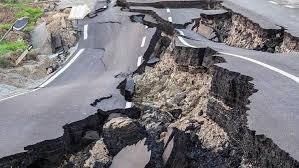


Posted November 16, 2016
Were you prepared to communicate with all possible stakeholders immediately after Monday’s earthquake? If not, your crisis communication plan needs a revamp.
 When it comes to crisis or emergency planning, most organisations have safety procedures in place, as they should. Safety should always be the number one priority when responding to an emergency.
When it comes to crisis or emergency planning, most organisations have safety procedures in place, as they should. Safety should always be the number one priority when responding to an emergency.
However, communication is also important. Bad communication in a crisis can threaten that safety. It can also impact badly on reputations and bottom lines. Every time there is a natural disaster, leaders from a number of sectors are unexpectedly thrown in front of a TV camera. This time it was local and national politicians, school principals, tourist operators and many others. That’s why anyone in a leadership position needs to be ready for that media phone call.
What about an average small business?
A typical small business owner may also be thrust into the news media. Just ask those based in Kaikoura. But there is one thing every business should have. That’s have a crisis communication plan. This doesn’t necessarily need to be huge or be produced by a public relations expert. The extent of your plan should depend on what could go wrong and the level of risk.
At the very least it must include up-to-date contact details of all business stakeholders and the ability to update social media sites. When there’s an earthquake or other natural disaster, customers need to know your situation. Are you still open? When will you be back up and running? How badly were you affected?
This is just good business. On a personal note, I was booked into a hotel the night after the earthquake and I couldn’t find out if it was open. There was no message on the website or social media pages, while I couldn’t even get hold of anyone on the phone. If I hadn’t already paid, I would have gone somewhere else and they would have lost my money.
Ideally your plan would also include statements pre-written on the most likely and serious crises you could face. These can then be tailored on the day and sent to your stakeholders and placed on your website. In some situations, these would need to be sent to the news media as a holding pattern until your inevitable media interview. You probably won’t have time to write these statements after the crisis erupts and the demands of social media these days means you need to have something up within minutes. Businesses at a higher risk of something going wrong (emergency or reputational issue) and other organisations like schools definitely need these statements and other important material in a more detailed plan, but that’s outside the scope of this post.
Consequences of not having a plan
If you don’t have a crisis communication plan that reflects your risk, the best outcome you can hope for in a crisis is to lose a few customers. But if the crisis is bad and you don’t respond properly, you could suffer reputational damage and see your bottom line hit badly. Just remember Warren Buffet’s famous quote. “It takes 20 years to build a reputation and 5 minutes to destroy it.”
If you want to learn the five steps to pain free media interviews, download my White Paper at this link.